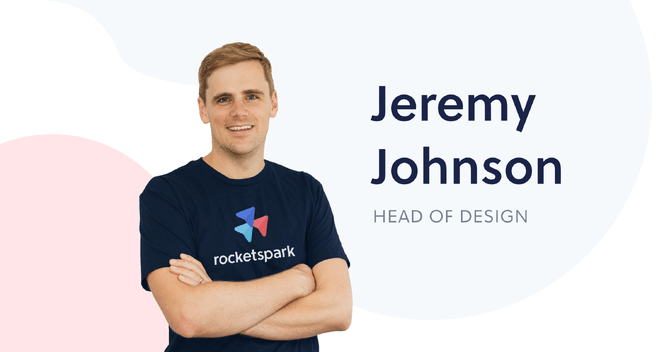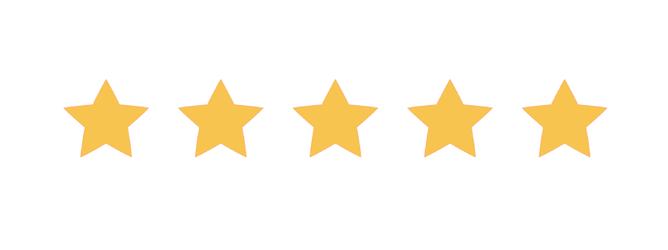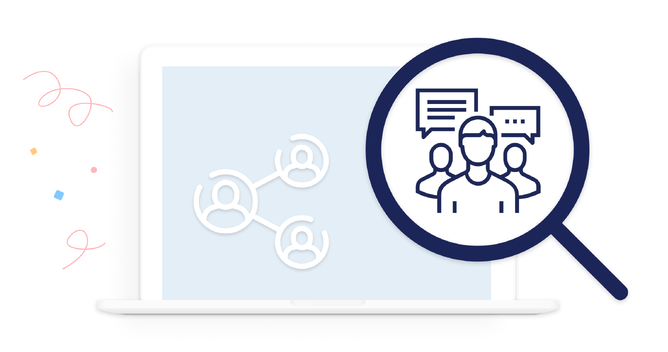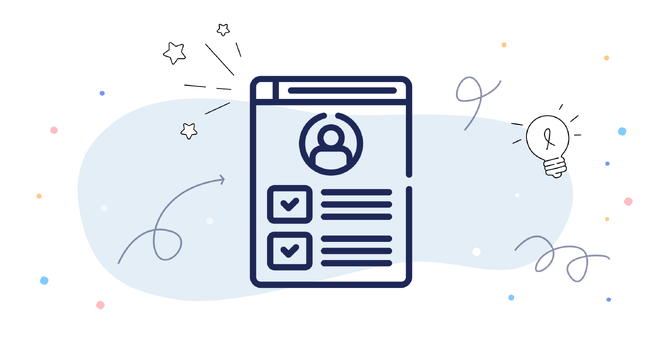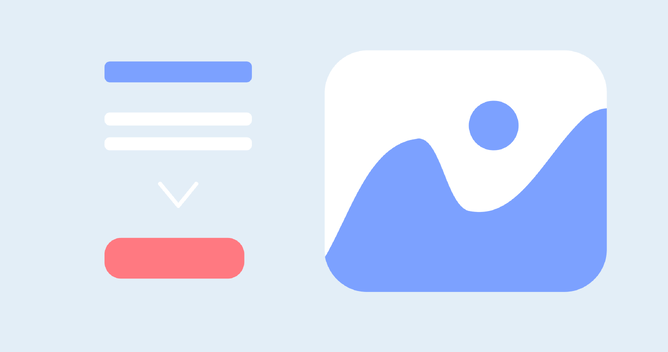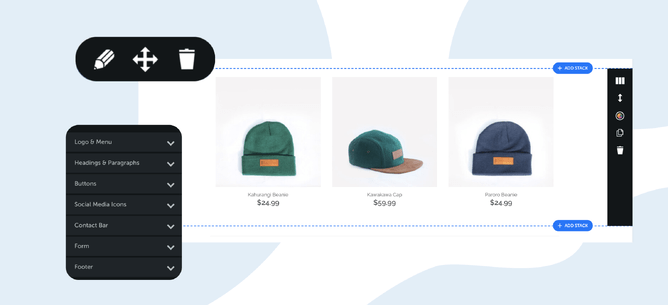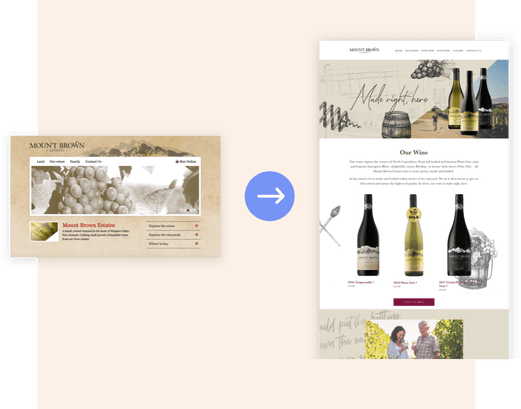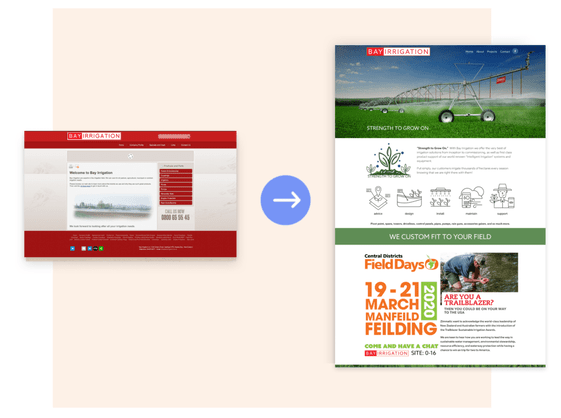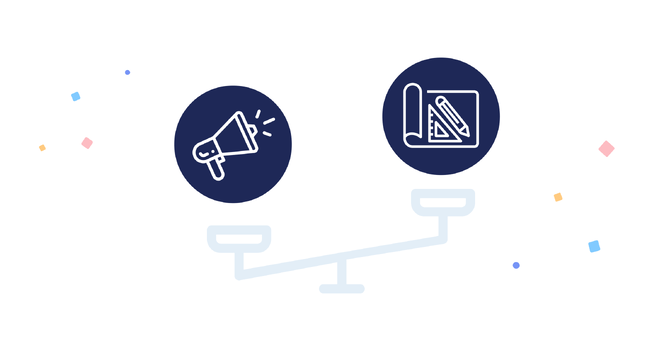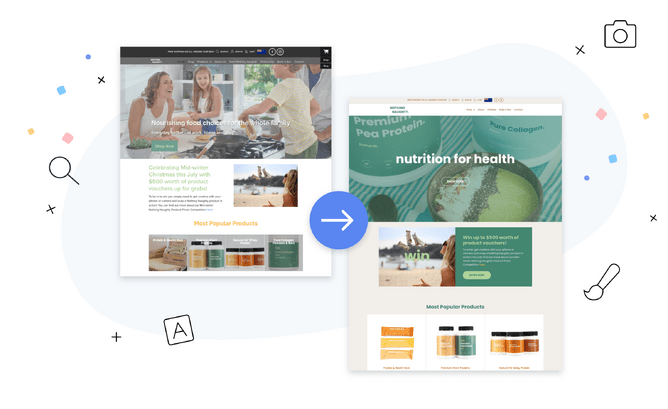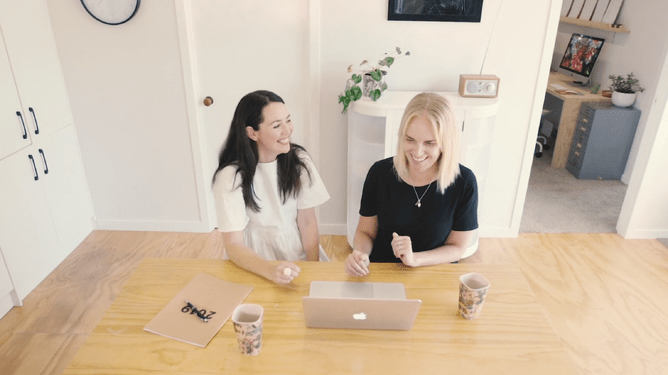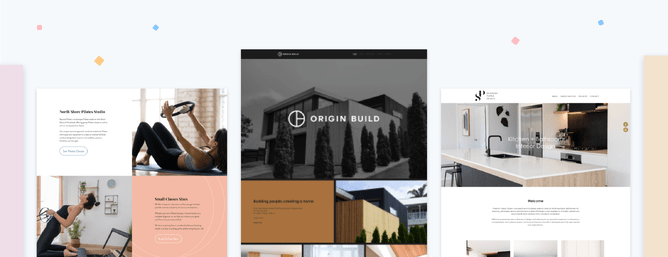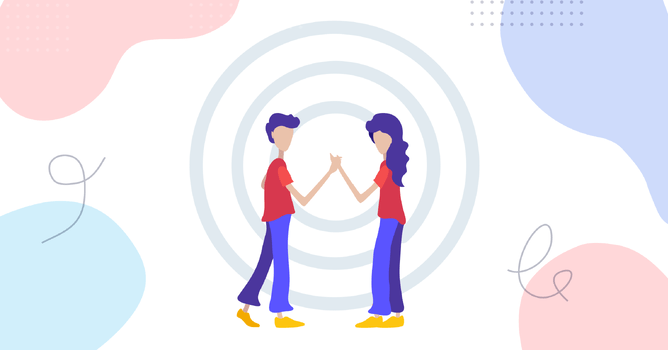Choosing a web designer can be tricky and with many stories of negative experiences, so how can you improve your chances of a good result?
I have been a web designer professionally for around 14 years, designing my first websites in a volunteer capacity, then as a freelance designer before we started Rocketspark in 2009. Across that time, we have heard many many many stories of businesses that have had a negative experience with the web design industry.
The most common story I’ve heard is “my web designer’s disappeared and I can’t get hold of them” — either mid-project or a few years after the site goes live. This is closely followed by “I don’t have control to make edits myself and my web developer is charging me huge hourly rates to make simple text changes that take weeks to complete”. Then there’s the “I paid $10,000 for my website and it looks terrible but I don’t have any budget left to fix it”.
There are dozens of other stories of things going bad in the web industry. So much so that some new clients coming to Rocketspark are distrusting of us by the association of being in the industry.
In the last 5 years I have spent more time designing the Rocketspark software, occasionally dabbling in web design and design research to keep up to speed on trends. We still hear the horror stories of projects going bad, so I’ve put together a checklist of things to help you find a trustworthy and reliable website designer.
How long has the web designer been in business?
The length of time someone has been in business shouldn’t be the only guarantee of reliability but it’s good to have in the mix. If someone is brand new in business, are they here to stay for the long term?
Do they have a lot of strong reviews?
Look deeper here beyond one or two short superficial testimonials on their website that don’t say anything specific about their service like — “This business is great” - John.. Are there long descriptive testimonials from a wide range of customers that speak to specific benefits or pros of working with that business, maybe even reviews on Facebook or Google.
How substantial is their social media following?
It takes a lot of time and/or effort to build up a business to business (B2B) social media following. Facebook and Instagram algorithms are slanted towards business to consumer (B2C) products, as they are more related to the social life of users on their platforms—things like chocolate, fashion, shoes, travel, food, entertainment. So if a web designer has a strong social media presence with positive interactions and comments, that could be a sign that they’re not a popup business ready to disappear in a puff of smoke.
Check their portfolio closely
A great website is a combination of a great logo, great colour selection and layout, high quality images and well written text. If any of these components is missing, your website will be less effective. When checking out prospective web designers, make sure you check their portfolio. If their examples aren’t strong in all of the above criteria, don’t assume they will magically deliver a 5 star design for your business (remembering that their portfolio is probably above their average level of design, showcasing their best examples).
Do they have any experience with a business like yours?
A designer who has never designed an electrician’s website before can still design a great electrician’s website, but if they’ve never designed a website for a trades business, builder or anyone in the building services industry, they may struggle. You’re an electrician and your designer has builder, plumber and air conditioning website examples that look great—you should be fine. If you’re wanting an ecommerce website and your designer has never designed ecommerce before, bear in mind that although they may be less expensive than someone with wide experience in designing an online store, your expectations will need to match their experience level.
Don’t underestimate the value of content writing and photography
Persuasive and engaging written content alongside professional photography/videography can really open up the potential for a world class website design in the hands of a great designer. If you receive a quote from a web designer and there’s no mention of either of these services, they may be expecting you to supply all text content and photography. If you’re not a professional writer or photographer, this could be a major handbrake to the overall design. If you’re comparing this designer’s quote with a designer that has itemised professional photography (usually with a third party) and content writing (sometimes done in-house or sometimes done by a dedicated third party content writer), be sure to keep in mind that you’re not comparing apples with apples.
What website platform will they design the website on?
There are effectively two main types of website platform.
- Platforms that require a developer or technical expert to code the website and set up website hosting.
- Website builders where the software and the hosting is bundled together into a package.
1.
Platforms that require a developer or technical expert to code the website and set up website hosting.
The first type of platform is popular with very technically capable web developers. Unless they are a larger business that employs designers and coders, it is less common for someone to be able to build websites this way and get the design looking great if they’re a freelancer unless they stick with off-the-shelf templates. These templates can look good initially but without a great designer in the team, the developer may struggle to adjust the template to your liking. This type of platform also requires ongoing technical updates, plugin updates and an ongoing support relationship from that web developer.
2.
Website builders where the software and the hosting is bundled together into a package.
This type of platform is what Rocketspark is. It’s a platform where someone could make their own DIY website, or choose to work with a designer who would design the website for them using the website builder. But wait, if it’s so easy that anyone could do it, why would I pay someone to do it? The results from a designer using a DIY website builder is almost always more impressive than when a non-designer uses this kind of platform.
Typically, designers using website builders rather than coding website platforms like Wordpress.org, are less expensive as there’s less technical hoops to jump through in the background. On these platforms, the updates are taken care of and after the designer hands you over the keys to the website, you could just have a relationship with the web company rather than with the designer if you choose.
Whichever platform the designer chooses, you should check the following:
Get them to show you an example of the editing experience and get them to confirm that you will have access to edit text and pictures yourself after the site goes live. If it looks super confusing and complicated to make edits yourself, you’ll either find yourself wasting time, breaking your site or giving up and paying them to make the edits. A really easy to use editing experience like Rocketspark means you’ll be able to zip in quickly, make the changes and get out.
Are there any hidden update costs in future? What will plugin updates cost? Is there an additional monthly management fee for this or will you be lumped with a bill at some point in future if the developer has to update to a new version of PHP or some other technical thing you don’t understand but have to pay for to keep your site functioning?
How does it look on mobile? Check examples they’ve designed on that platform on a mobile screen.
Can they show you any examples of their clients that are ranking well in search results. Some website platforms will put you at a disadvantage in Google searches, so examples that give proof of success will give you more confidence.
What will the monthly cost be and what’s included in that cost? Some website platforms are dramatically more expensive than others. Rocketspark is slightly more expensive than some website builders but the level of security and support available is also typically higher.
For more, check out our article Questions to ask your web designer.
Do the web designer value design and marketing impact equally?
I spoke with a builder a few years back about his website that was with another website design company. This company puts a huge emphasis on lead capture and digital ads but have a reputation for poor design — and as such, he was hugely disappointed with the design. However, something else interesting was happening. The leads he was getting from this leads-first approach were low-quality leads. These leads were wanting fences, decks and other low-cost alterations done. None of these leads was wanting new home builds or major renovations (projects over $200,000 in value that he was wanting to focus on).
The reality is that customers in that high spend bracket looking to build a new home will almost certainly come via positive word of mouth social proof. If you’re a fencing business, maybe digital ads and an ugly website will get you what you need but don’t underestimate the value of design to convert visitors to customers. Ads will only get people to your website, they can’t guarantee they’ll become customers and for that reason this builder is now no longer with that web design company.
All of our most successful ecommerce clients spend a significant amount on digital ads on Google and/or social media and it’s a must-do if you want to scale your ecommerce business. However, don’t underestimate the value of design.
I recently did a home page makeover for long-time client Nothing Naughty (who do invest significantly in digital ads) and they had this to say about the impact of the redesign:
"Since the redesign we have noticed a very significant increase across key website metrics including overall website revenue, ecommerce conversion rates, transactions, unique purchases and average order value. As online is our main retail channel this has huge implications for us as a small business in terms of revenue and growth and we are excited to see how this will flow on to continued growth down the line. In seeing these sorts of increases so quickly this has confirmed just how important website design is in attracting and converting browsers to customers and the investment in a design expert is well worth the return.”
Naomi Cranston, Marketing Manager, Nothing Naughty
The other end of that spectrum is the designer that loves pretty colours, fonts and squiggles but gives little thought to SEO, lead capture, highly persuasive website text, email marketing or digital advertising. Many great designers will admit this area isn’t their strength so may partner with an expert in this space to help them with paid digital advertising or content writing. That relationship can work well but make sure you check reviews for their provider as well.
Between a rock and a hard place...
There are advantages to working with small local web design providers but there are also risks involved. Most of the issues with disappearing web designers are with freelance 1-person businesses. Those small operators are also typically more affordable than businesses with larger teams, overheads, commercial office space etc—usually priced more suitably for small businesses than large agencies in metropolitan areas.
Conversely, most of the issues with expensive web design costs and expensive ongoing updates are with larger agencies. If you’re a large business with the budget to spend with a large web agency, you might appreciate the level of professionalism they bring, despite the price tag. However, make sure to check their reviews and portfolio as many large web agencies pump out terrible looking websites.
So which way should you go?
Get the best of both worlds!
A few years ago we stopped designing websites in-house at Rocketspark and started referring to our network of trusted Design Partners. Rocketspark is the website platform that our Design Partners use to design websites for their clients.
This symbiotic relationship is effective for a few reasons:
- We provide training and support to our design partners—helping them provide the best website service they can. If our mutual clients have any issues, we follow it up and work with the design partner to rectify the problems in their processes. With other website builders, there is much less of a personal connection between the designer and the website platform, so if an issue arises you’re left sending a support email to the USA, Israel, Canada or wherever their support team is. Rocketspark Design Partners have a dedicated Partner Manager at Rocketspark and a Customer Success team they can contact for prioritised support.
- We provide a free matchmaking service to connect you with the best design partner for your project, taking into account industry, budget, timeframe wait expectations, current capacity, location and other requirements. Rather than deciding between many different designers, we will give you our best recommendation.
- You are a client of both Rocketspark and the designer. This means that support is included in your Rocketspark website subscription. So after your site goes live, you can phone us, email us and get support from our Customer Success team. This level of support is difficult for lone operators to offer as it’s just them. If they’re in a meeting with another client, there’s no backup. If they’re away on holiday, there’s no backup. If they’re off work sick, there’s no backup. By using Rocketspark you get 5-star rated support from an award-winning support team.
- Even if the design partner did disappear in a puff of smoke, you own your website and can get in touch with Rocketspark about gaining access to your website (if you didn’t already have it from the get go). This means that even in the worst-case scenario, you’re protected.
- Rocketspark does offer a DIY website builder option. So if funds are tight right now you can build your own website and then work with a Rocketspark design partner in future without the cost of changing platforms or the hassle of learning a new editing experience.
We are big believers in supporting local. By providing a platform for small local operators to be able to confidently offer a website experience that small businesses can afford and trust, we are helping grow the business community in that town.
